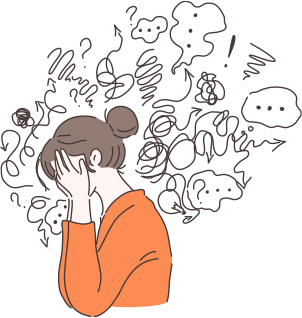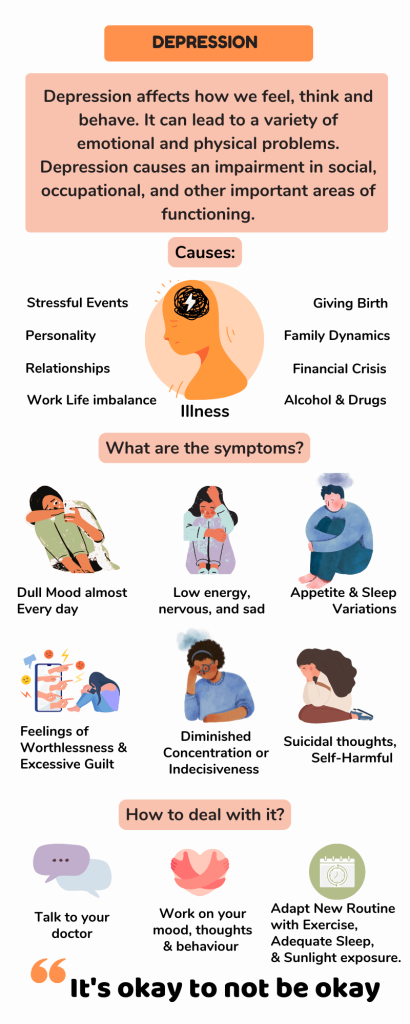DEPRESSION
Depression is a treatable disorder that changes how you think and feel. It also affects your social behavior and sense of physical well being. We have all felt that at one time or another, but if these feelings linger, intensify and begin to interfere with work, school or family responsibilities, it may be depression.

If you have any one of the following symptoms you might be suffering from depression and should consider seeking help.
- Feeling sad or empty most of the day at least for two weeks
- Unprovoked crying spells
- Diminished interest or pleasure in all or almost all daily activities
- Extremely low sense of self worth or unprovoked feelings of guilt
- Significant decrease in appetite leading to weight loss
- Either difficulty in sleeping, waking up at 2 or 3 am, or feeling excessively sleepy throughout the day
- Feeling either very agitated or very lethargic and slow
- Unusual fatigue and loss of energy
- Difficulty in concentrating on normal activity
- Recurrent thoughts of death or suicidal ideas.
From the American Psychiatric Association Diagnostic and Statistical Classification of Mental Disorders, fourth edition.

How Is Depression Treated?
Depression is among the most treatable of mental disorders. Between 80% and 90% percent of people with depression eventually respond well to treatment. Almost all patients gain some relief from their symptoms. Before a diagnosis or treatment, a health professional should conduct a thorough diagnostic evaluation, including an interview and a physical examination. In some cases, a blood test might be done to make sure the depression is not due to a medical condition like a thyroid problem or a vitamin deficiency (reversing the medical cause would alleviate the depression-like symptoms). The evaluation will identify specific symptoms and explore medical and family histories as well as cultural and environmental factors with the goal of arriving at a diagnosis and planning a course of action.Medication
- Brain chemistry may contribute to an individual’s depression and may factor into their treatment. For this reason, antidepressants might be prescribed to help modify one’s brain chemistry. These medications are not sedatives, “uppers” or tranquilizers. They are not habit-forming. Generally antidepressant medications have no stimulating effect on people not experiencing depression.
- Antidepressants may produce some improvement within the first week or two of use yet full benefits may not be seen for two to three months. If a patient feels little or no improvement after several weeks, his or her psychiatrist can alter the dose of the medication or add or substitute another antidepressant. In some situations other psychotropic medications may be helpful. It is important to let your doctor know if a medication does not work or if you experience side effects.
- Psychiatrists usually recommend that patients continue to take medication for six or more months after the symptoms have improved. Longer-term maintenance treatment may be suggested to decrease the risk of future episodes for certain people at high risk.



















